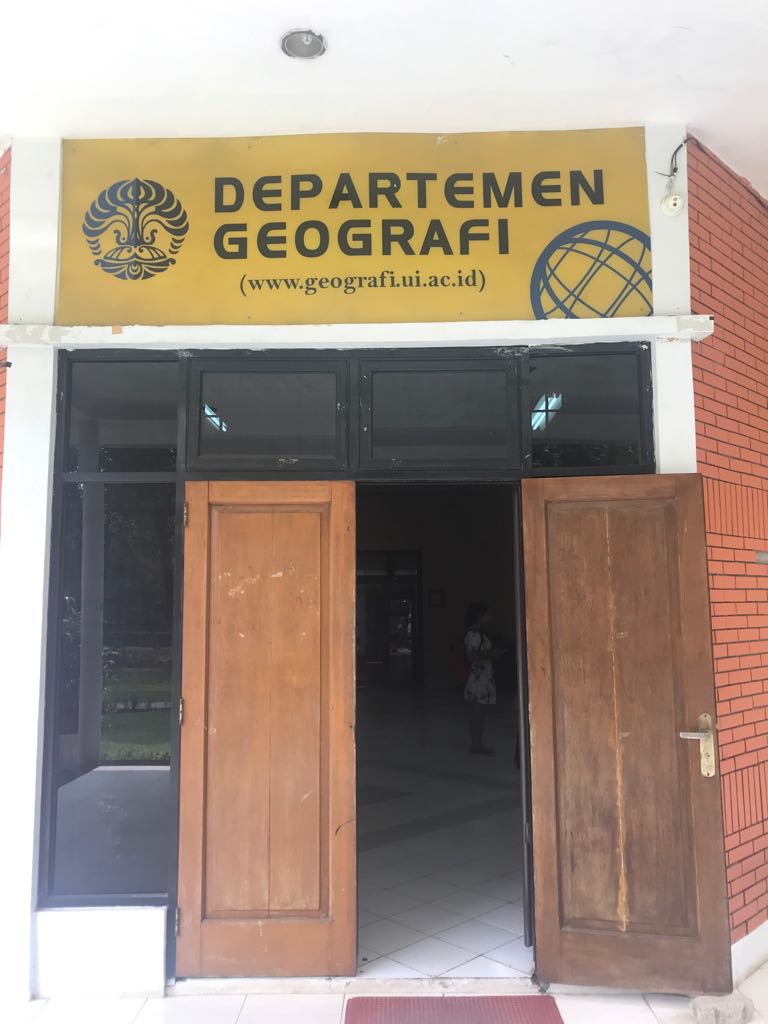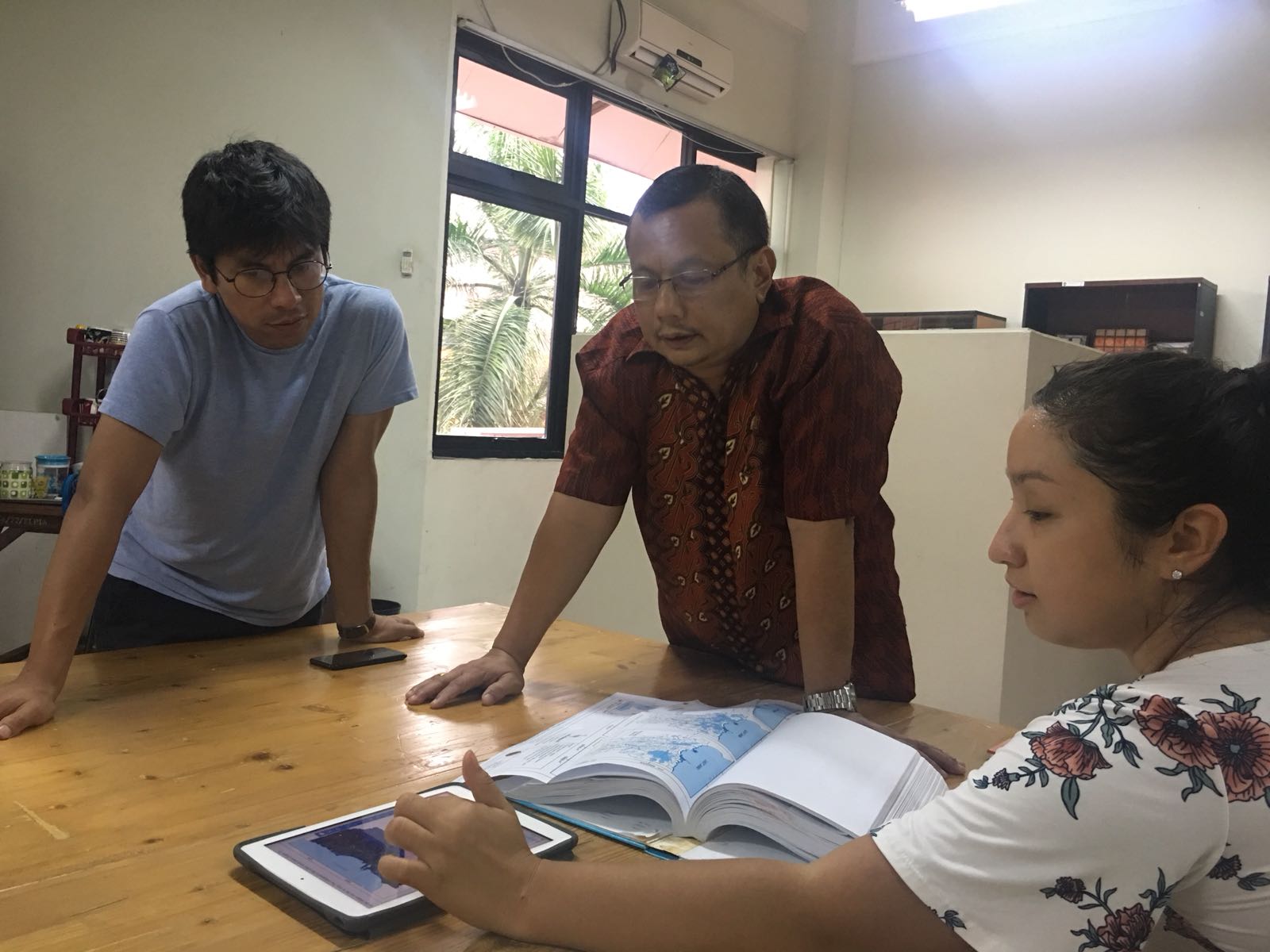As happens in the whole academic world, it is difficult to determine whether a research topic is original or one has not yet looked for sufficiently among the different authors that have studied the subject. Naturally, that is a more complex disquisition when you are working a topic about a city located thirty-eight flying hours away from your current city. That is the reason why we appreciated a lot to have made a visit to local researchers that have done conducted analysis of their own city. Dr. Mangapol is a geographer from the University of Indonesia. It took us a while to finally meet him in his office in the campus of that university because he had to leave to pay his last respects to a colleague of him that had passed away in the previous day. While waiting in the hallway of the Department of Geography we were able to observe several research projects in boards that were hanging from the walls, many of which had the topic of flooding as one of the main concerns in the geospatial analysis. Once in the meeting we were able to see the physical doctoral dissertation that originated the paper that we had read. Although much patience was needed by both parties because of our lack of knowledge of Bahasa, our conversation in English allowed us to see the methods of identification of the areas of the city prone to flooding. According to the geographic study, that propensity is correlated to the existence of certain type of landform and certain type of land use in an area. However, in order to determine which parts of those areas were prone to disaster, it had to be added the layer of density of population. The result of that analysis was the map that we will include in the research, that shows how the higher risks are associated both to the paths of the rivers and channels that go through the city and the closeness to the northern bay. The most useful outcome of the conversation has been to be able to give a technical support to that intuition that the closer you get to the sea the higher the risk of flooding is.
Jakarta | University of Indonesia
Deja una respuesta
[Visto: 1120 veces]

